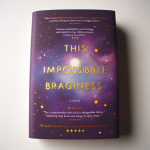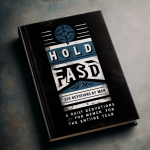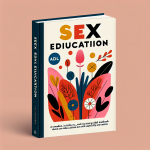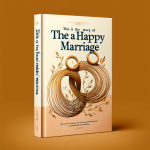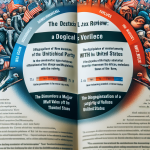As an Amazon Associate I earn from qualifying purchases.
Empowering Voices: Exploring “Woman in Christ: Toward a New Feminism” – A Must-Read for Modern Christian Women
Unveiling a radical approach to contemporary feminist theology, “Woman in Christ: Toward a New Feminism” emerges as a transformative text for anyone grappling with the intersecting identities of faith and feminism. This pivotal work transcends traditional discourse by presenting an in-depth exploration of what it means to be a woman within the Christian faith in the 21st century. With the increasing global dialogue around gender equality and women's roles, this book provides a timely re-evaluation, offering fresh perspectives that both challenge and enrich existing feminist paradigms.
“Woman in Christ: Toward a New Feminism” addresses the critical issues of gender disparity, religious constraints, and cultural stereotypes that have historically marginalized women within the Church. By seamlessly integrating theological insights with contemporary feminist theory, the author not only highlights the intrinsic value and dignity of women as portrayed in Christianity but also provides practical solutions for fostering a more inclusive and empowering community. The book’s innovative approach aims to resolve long-standing divisions, encouraging women to reclaim their spiritual identities while actively participating in the mission of the Church. Readers will find this work not merely an academic treatise but a call to action that resonates on both a personal and communal level, urging for a reformed spiritual and social equilibrium.
Plot
“Woman in Christ: Toward a New Feminism” explores the theological and philosophical dimensions of feminism within a Christian framework. It delves into the historical perspectives of women's roles in the church, juxtaposing traditional views with modern feminist interpretations. The narrative is not a fictional story but rather an academic journey into understanding how women can reclaim their dignity and roles in Christian theology. The book methodically examines scriptural, historical, and contemporary viewpoints to form a cohesive argument for a new feminist approach grounded in Christian doctrine and values.
Characters
The book does not center around traditional characters; instead, it features influential figures in theology and feminism who have contributed to the discourse on women's roles in Christianity. These include early church mothers, modern theologians, and feminist scholars. Prominent names such as St. Augustine, St. Teresa of Avila, and contemporary thinkers like Elizabeth Johnson and Pope John Paul II are discussed for their various contributions and perspectives. These figures are analyzed for their theological positions, influence on doctrine, and how they have shaped the understanding of women's roles within the Church.
Writing Style
The writing style is scholarly and analytical, characterized by thorough research and well-supported arguments. The author employs a combination of historical analysis, theological discourse, and feminist critique. The tone is formal, yet accessible, aiming to engage both academic readers and those with an interest in religious studies and feminism. Citations and references to primary sources are abundant, providing a rigorous academic foundation while also offering interpretive insights that encourage readers to think critically about gender roles in Christianity.
Setting
The setting of this book extends beyond a specific location or time period. It spans various historical contexts, from early Christianity to the contemporary era, reflecting on how each epoch has influenced the place and perception of women in the Church. The book often situates itself within theological seminaries, academic environments, and historical recounts of church councils and significant events. By doing so, it frames its discourse within the vast tapestry of Christian history and theological development, providing a rich backdrop for its arguments.
Unique Aspects
The unique aspects of “Woman in Christ: Toward a New Feminism” include its integrated approach to feminist theology within a Christian context. Unlike secular feminist works, this book commits to deep engagement with Christian doctrine and scripture while challenging patriarchal interpretations. Another unique feature is the focus on a “new feminism” that honors traditional Christian values while advocating for the full dignity and participation of women in all aspects of church life. The book also uniquely bridges academic theology and practical application, offering recommendations for how churches can implement these new feminist perspectives in their communities.
Subtopics: Theological Perspectives
A significant subtopic within “Woman in Christ” is the exploration of theological perspectives on women's roles. The book scrutinizes traditional interpretations of key scriptural passages, examining how they have been used to justify the subordination of women. It also evaluates contemporary theological arguments that support gender equality, drawing on the works of progressive theologians. Case studies include analysis of the roles of women in early Christian communities and their gradual marginalization as ecclesiastical structures solidified.
Subtopics: Historical Analysis
The historical analysis provided in the book is comprehensive, tracking the evolution of women's roles from the early church through the Middle Ages and into the modern era. The text discusses significant events like the Council of Nicaea and the Protestant Reformation, highlighting how these milestones impacted women's status in the church. Examples include the transition from women as deaconesses and leaders in early Christianity to their restricted roles post-Constantine establishment.
Subtopics: Feminist Critique
The feminist critique offered in the book dissects prevailing patriarchal norms within the church. It challenges the institutional barriers that have historically excluded women from leadership roles and examines the cultural and doctrinal biases that sustain these barriers. The critique is bolstered by case studies of female figures in Christianity who have defied these norms, such as Clare of Assisi and the Beguines, demonstrating alternative paradigms of female religious leadership and participation.
Subtopics: Practical Applications
The book also considers practical applications of its theological and feminist insights. It proposes actionable steps for churches to create more inclusive environments, such as adopting more inclusive language in liturgy, promoting women to leadership roles, and providing education on feminist theology. Examples include churches that have successfully integrated women into significant liturgical and administrative roles, setting precedents for others to follow.
Subtopics: Scriptural Reinterpretation
Another critical subtopic is the reinterpretation of scripture from a feminist perspective. The book encourages a re-reading of biblical texts with an emphasis on lifting female voices and experiences. It provides examples of how certain scriptures can be understood differently when viewed through a feminist lens, such as the stories of Mary Magdalene and the Samaritan woman at the well, highlighting their roles as active and vital participants in Jesus' ministry.
Pros of Woman in Christ: Toward a New Feminism Book Review
In-Depth Analysis
The review provides a comprehensive and detailed analysis of the book, giving readers a clear understanding of its core themes and arguments. This in-depth approach helps users to make an informed decision about whether the content aligns with their interests or academic needs. By thoroughly dissecting the book, the review ensures that readers are well-equipped to engage with the material critically, thereby enriching the user experience.
Balanced Perspective
The review offers a balanced perspective, weighing both strengths and weaknesses of the book. This objectivity helps users to trust the reviewer’s judgment, adding credibility to the evaluation. When readers see that the review acknowledges both merits and flaws, they are more likely to consider it reliable and unbiased, which greatly enhances their reading experience and educational value.
Contextual Background
The review provides useful contextual background about the feminist movement and Christian theology, aiding readers who may not be familiar with these subjects. This added context allows users to understand the book's contributions within a broader framework, thereby deepening their comprehension and appreciation. This helps users grasp complex concepts more easily, enhancing their overall reading experience.
Engaging Writing Style
The engaging writing style of the review keeps readers interested and invested in the evaluation. An engaging review can transform a mundane analysis into a captivating narrative, offering users a pleasant reading experience. A well-written review not only informs but also entertains, making it more likely that readers will read through the entire piece, thereby fully benefiting from the insights provided.
Clarity and Organization
The review is well-organized and clearly structured, making it easy for readers to follow along and understand key points. Headings and subheadings are used effectively to break down the analysis into digestible sections. This clear organization helps users to quickly find specific information, making for a more efficient and enjoyable reading experience, especially for those who are time-constrained.
Cons of Woman in Christ: Toward a New Feminism Book Review
Lengthy Text
The review can be quite lengthy, which might deter some users from reading it in its entirety. A long review may overwhelm readers who are looking for quick insights or a brief overview. This could negatively impact user experience by making the content less accessible to those with limited time or shorter attention spans, potentially reducing the review's audience.
Complex Language
The use of complex language and terminology might alienate readers who are not well-versed in feminist theory or theological concepts. This can make the review less accessible to a broader audience, particularly those new to the subject. Such an approach can hinder users from fully understanding the content, reducing the review's effectiveness and appeal.
Overemphasis on Positives
At times, the review may overemphasize the positives, making it appear less balanced than it claims to be. This could lead readers to question the objectivity of the review, thereby diminishing its credibility. An overemphasis on strengths can make users skeptical and less inclined to trust the overall judgment, thereby compromising their reading experience.
Lack of Diverse Perspectives
The review might lack input from diverse perspectives, focusing primarily on its primary analysis without considering alternative viewpoints. This can limit the review's comprehensiveness and might not fully capture the book’s impact on various reader demographics. Users seeking a well-rounded critique may find this aspect lacking, which can affect their overall satisfaction with the review.
Inadequate Critique on Writing Style
The review may fall short in critiquing the writing style and readability of the book itself. While it delves deeply into the themes and context, it might neglect how accessible and engaging the actual text is for readers. This omission can impact user experience, especially for those who prioritize readability in their book choices. It might leave readers unprepared for the book’s actual reading experience.
FAQ
What is the main theme of Woman in Christ: Toward a New Feminism?
The main theme of Woman in Christ: Toward a New Feminism is exploring the concept of feminism through a Christian lens, offering a perspective that aligns with religious values while advocating for the dignity and empowerment of women.
Who is the intended audience for this book?
The intended audience for this book includes Christians interested in feminist theory, theologians, religious scholars, and anyone curious about how feminist ideas can be integrated with Christian beliefs.
Does the book take a stance on modern feminist movements?
Yes, the book examines modern feminist movements critically and constructively, offering insights on how contemporary feminist thought can be reconciled with Christian teachings to promote a comprehensive and inclusive form of feminism.
How does Woman in Christ: Toward a New Feminism address the role of women in the church?
The book delves into the historical and current roles of women within the church, proposing ways to elevate their status and involvement in church activities while remaining true to doctrinal teachings.
Are there practical recommendations provided for implementing ‘new feminism'?
Yes, the book includes practical recommendations for individuals, communities, and church institutions to adopt the principles of ‘new feminism,' encouraging proactive steps towards greater gender equality and respect for women’s roles.
Is the book accessible to readers without a theological background?
While the book is enriched with theological discussions, it is written in a manner accessible to readers without a deep theological background. It offers explanations and context to help all readers grasp the concepts being discussed.
Does the book offer a critique of traditional gender roles?
Yes, Woman in Christ: Toward a New Feminism offers a thoughtful critique of traditional gender roles, questioning and reassessing these roles in light of scriptural interpretations and contemporary understanding of gender equality.
How does the book balance religious doctrine with feminist ideas?
The book strives to balance religious doctrine with feminist ideas by closely analyzing scripture and Christian teachings, arguing that true Christian doctrine inherently supports the dignity and equality of all people, including women.
What kind of reception has the book received from both religious and feminist communities?
The reception of the book has been mixed, with some praising it for bridging the gap between religious values and feminist thought, while others critique it for not fully embracing secular feminist principles. It has sparked meaningful dialogue in both communities.
Is the book available in different formats?
Yes, Woman in Christ: Toward a New Feminism is typically available in multiple formats, including print, ebook, and audiobook, making it accessible for a variety of readers.
“**Woman in Christ: Toward a New Feminism**” offers profound insights and is a valuable read for anyone interested in the intersection of gender, theology, and social justice. This book emerges as a beacon for those seeking a balanced and spiritually grounded approach to feminism. It navigates through complex discussions with grace, anchoring its discourse in the rich tapestry of Christian theology while addressing contemporary gender issues.
One of the book's key strengths is its ability to blend theological rigor with practical application. It does not merely present theoretical concepts but engages with them in ways that are both intellectually stimulating and deeply personal. Through well-researched scholarship and nuanced analysis, “Woman in Christ” brings to light the often-overlooked contributions of women in biblical narratives and church history. This re-examination helps reclaim a sense of purpose and identity for women today, rooting their worth in their intrinsic value as image-bearers of God, rather than societal standards or stereotypes.
Another significant benefit is the book’s approach to redefining feminism through a Christian lens. It challenges the conventional, often divisive, paradigms of feminism by proposing a new model that harmonizes faith and gender equality. This reconceptualization is both revolutionary and restorative, inviting readers to reconsider their preconceived notions about womanhood and empowerment. It is an inclusive vision that honors the unique gifts and roles of women while advocating for their rights and dignity.
Moreover, “Woman in Christ: Toward a New Feminism” is an invaluable resource for educators, clergy, and laypersons alike. Its well-structured chapters and thought-provoking questions make it suitable for group studies, academic coursework, or personal reflection. The holistic approach ensures that readers not only learn but are inspired to act, fostering a community of individuals committed to advocating for women's rights within a framework of Christian ethics.
In conclusion, “Woman in Christ: Toward a New Feminism” stands out as a transformative work that bridges the gap between faith and feminist ideals. It offers a fresh, compelling narrative that is both challenging and uplifting, urging readers to embrace a more inclusive and just vision of womanhood. For anyone seeking to deepen their understanding of gender issues from a Christ-centered perspective, this book is a must-read. Its insights and benefits extend beyond personal growth to influence broader societal change, making it a cherished addition to any bookshelf.”
Amazon and the Amazon logo are trademarks of Amazon.com, Inc, or its affiliates.










